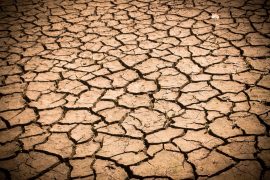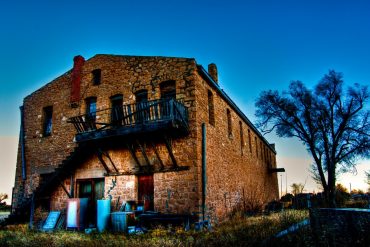So listen to them, heed them. Who never touch the Earth, can never be in Heaven.
– Adam Mickiewicz
I stood alone in the early morning air, overlooking the farm grounds before me. Silence encompassed as a thin layer of fog smothered the earth below. The upturned earth of finished crops and the remnants of fall crops reached upwards, breaking surface—gasping for air. A stillness had overcome the landscape, a collective paralysis. I too stood motionless, taking in the morning, for what seemed a lifetime. And then, suddenly, I was overwhelmed with a realization: a whole world was alive beneath the soles of my feet.
The interconnected processes of life occurring in the soil, the millions upon millions of microorganisms, the worms squirming, the thousands upon thousands of feet of root mass, the various subterranean animals were all down there contributing to the scene above.
I have long found there to be a dimension of Creation that goes unexperienced outside the realm of physical work
No matter how many hours I spend hiking, canoeing, camping, or any other outdoor activity this dimension goes hidden. Only when my body is engaged in some sort of labor do these experiences bare themselves.
Plenty of Christians have harped on the spiritual benefits of physical work. The patron saint of dish washing, Brother Lawrence, comes to mind first and foremost. Known as a simpleton who hadn’t the education to become a priest, Lawrence had a spiritual presence that those who encountered him found mesmerizing and undeniable. In his short work, the spiritual classic The Practice of the Presence of God, Lawrence writes on finding the presence of God in all experiences, even the most simplest of tasks and jobs. Lawrence cultivated a spirituality that allowed him to find himself prayerfully in the presence of God no matter what work he was attending to. “We ought not to be weary of doing little things for the love of God, who regards not the greatness of the work, but the love with which it is performed.”[ref]Brother Lawrence. The Practice of the Presence of God. New Kensington, PA: Whitaker House, 1982.[/ref]
Simone Weil, the French philosopher and mystic, also comes to mind. Weil, who showed solidarity with the working masses by working alongside them in factories, found physical work to be very much a spiritual practice. “Physical work is a specific contact with the beauty of the world, and can even be, in its best moments, a contact so full that no equivalent can be found elsewhere.” [ref]Simone Weil. Waiting for God. Translated by Emma Craufurd. New York: Harper Perennial Modern Classics, 2009.[/ref]. Weil believed that work allowed us to pierce through the “film of unreality” that hides the world. Taking in the pains and aches of physical works allows us to come into contact with the reality around us. “He who is aching in every limb, worn out by the effort of a day of work, that is to say a day when he has been subject to matter, bears the reality of the universe in his flesh like a thorn. The difficulty for him is to look and to love. If he succeeds, he loves the Real.”[ref]Ibid.[/ref]
What is it that makes these working experiences so unique? Perhaps we mindfully take part in the larger work of Creation, intentionally joining our body to the larger assemblage of parts. The things that separate us from the world are cast aside and we simply join in. Instead of approaching a switch to turn the heat up, we head outside to chop wood. Instead of picking food from grocery store aisles we pick food from a garden plot we have tended. We move from mechanical to biological. These small labors connect us back to the processes that sustain life, no longer hidden from our view or touch.
And yet, this work can be irritating, back-breaking, sweaty, dirty, blister-inducing… just plain awful. These experiences, too, are a real part of life on this floating round rock, and the more we are removed from them the further we fall into illusion. It is not that air conditioning, heating, log splitters, power windows, microwaves, tractors and so forth are inherently bad but we have to remember that they often disconnect us, even distract us, from Creation.
Physical work should never be idealized but it should also never be demeaned. And we sure as hell shouldn’t hide from it.
The more we advance technologically, the more we tend to look down on physical work. Yet this work connects us to the realities of Creation in a way pressing buttons or staring at screens never can. The reality of Creation is that it is a place of beauty and terror, and to experience the beauty you must come in contact with the terror. Tending a garden can be a pain in the ass: there are weeds, insects, birds, and diseases doing all they can to destroy your efforts. And yet there is the experience of cultivating earth, watching the miracle of life in action before you, eating food you helped produce. Physical work is never an either/or, it is always both the good and the bad.
Getting one’s hands dirty exposes one to the reality that Creation is a place of ups and downs, a place where we oftentimes are more along for the ride than in control. This is a much needed experience and reality to which we must expose ourselves. May our spirits no longer shine, but instead be soiled.





